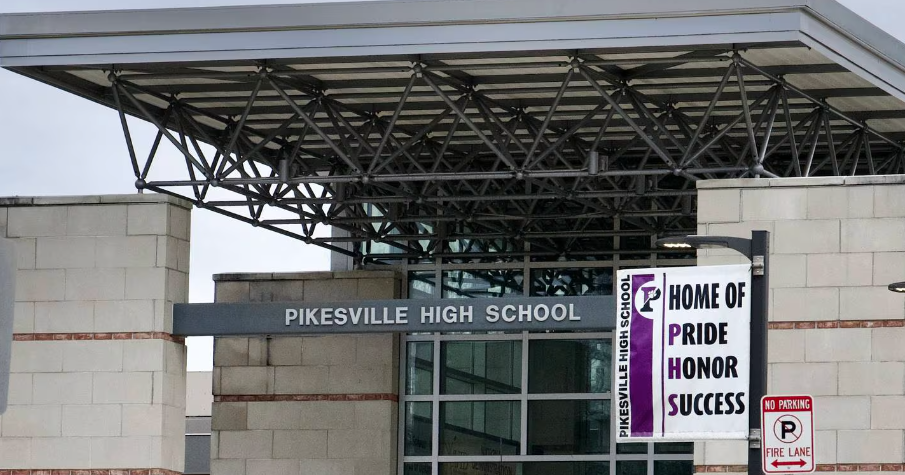O'Malley Cites Strong Grounds To Appeal DNA Ruling
ANNAPOLIS, Md. (AP) -- Gov. Martin O'Malley said Wednesday he believes there are strong grounds to appeal a ruling by Maryland's highest court that struck down a part of a state law allowing police to collect DNA from people charged with a violent crime, burglary or attempts to commit those crimes.
The governor, who pushed for the law in 2008, said the law has protected residents better and solved crimes. While O'Malley noted that other state courts have overturned similar laws, he pointed out that federal courts have been supportive.
"I know we're not the only state to make a strange decision like this and those cases, usually when they've gone to the federal courts, the federal courts have viewed, for the most part have viewed, a DNA swab as no more intrusive than a fingerprint," O'Malley said.
The governor expressed disappointment in the ruling.
"We've solved a lot of crimes and we've been able to protect in particular a lot of women from being raped by the ability to use DNA to solve crimes," O'Malley said.
The Maryland attorney general's office is reviewing the ruling and strongly considering an appeal, said Alan Brody, a spokesman for Attorney General Doug Gansler.
Maryland expanded its offender DNA database in 2009 to implement the measure that was passed the year before. As of Feb. 15, there have been 178 charged offender hits that have resulted in 57 arrests, the O'Malley administration said.
About half of the nation's states now require pretrial collection of DNA samples from people who are arrested but not yet convicted of various crimes.
Larry Gibson, who has taught about evidence at the University of Maryland School of Law for decades, said he doesn't think the case has the characteristics of one the U.S. Supreme Court would be likely to consider in the near future.
"My guess is that the Supreme Court will wait awhile -- probably quite a while -- until there have been many more decisions on this matter and to see if a serious split develops among the federal circuit courts," Gibson said.
In February, a divided federal appeals court ruled that California law enforcement officials can keep collecting DNA
samples from people arrested for felonies. The 9th U.S. Circuit Court of Appeals said law enforcement's interest in solving cold cases, identifying suspects and even exonerating the wrongly accused outweigh any privacy concerns.
In July, the 3rd U.S. Circuit Court of Appeals agreed with federal prosecutors who appealed a judge's ruling that it was an
unconstitutional invasion of privacy to routinely collect DNA samples from defendants who had yet to be convicted.
Scott Shellenberger, Baltimore County's state's attorney who supports the DNA sample law, said he thought the case was a perfect one for the Supreme Court's review.
"I think this split of authority between states and federal courts makes Maryland's case uniquely ripe for Supreme Court
review," Shellenberger said.
The Maryland Court of Appeals, which issued its ruling Tuesday, agreed with the Minnesota Supreme Court in an earlier case. The Minnesota court ruled that establishing probable cause to arrest someone is not sufficient to allow a biological specimen to be taken without first obtaining a search warrant.
The Maryland court issued its 5-2 ruling in the case of Alonzo King Jr., who was arrested in 2009 on first- and second-degree assault charges. His DNA sample matched a sample taken from a sexual assault victim in an unsolved 2003 rape. King was convicted of first-degree rape and sentenced to life in prison. The ruling sent King's case back to Wicomico County Circuit Court for a new trial.
"We simply will not allow warrantless, suspicionless searches of biological materials without a showing that accurate
identification was not possible using `traditional methods,"' the Maryland court said.
A dissenting opinion by Judges Mary Ellen Barbera and Alan Wilner concluded that people who have been arrested have "a grossly diminished privacy expectation."
"The majority arrives at this decision by overinflating an arrestee's interest in privacy and underestimating the state's
interest in collecting arrestee DNA, and in doing so, plays fast and loose with the well-recognized test for determining the constitutionality of warrantless searches," they wrote.
David Rocah, staff attorney for the ACLU of Maryland, praised the ruling.
"I think they set an important limit on the government's ability to compel and search DNA information from persons not
convicted of a crime, and I think having such limits is a critical privacy protection for all of us in Maryland, given the mission creep that we have already seen with respect to forced DNA collection and the ever-expanding DNA databanks," Rocah said.
(Copyright 2012 by The Associated Press. All Rights Reserved.)



